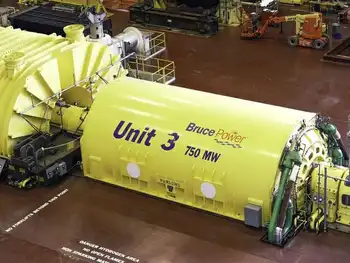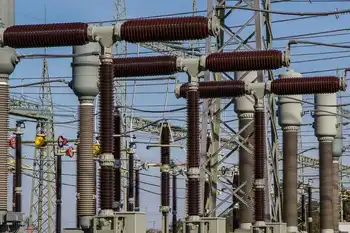Canada will buy credits to meet Kyoto target
OTTAWA, ONTARIO - Canada will almost certainly pay poor countries to be greener so the federal government can meet its domestic emission targets under the Kyoto Protocol, Finance Minister Ralph Goodale indicated recently.
But any such foreign purchases must qualify for the Kyoto seal of approval by reducing actual greenhouse gas emissions in those countries through improved energy efficiency or alternative technologies, Goodale emphasized.
The finance minister promised the Commons environment committee that Canada would not buy so-called "hot air" credits from Russia, where emissions have dropped because of the country's economic collapse after 1990, the baseline year for Kyoto calculations.
"That sort of international expenditure is not on Canada's agenda," he vowed.
Internal government documents have suggested Canada may have to spend as much as $1billion buying emission credits from abroad to meet its Kyoto target of a 6 per cent reduction from 1990 levels for the entire 2008-2012 period.
Already emissions of carbon dioxide and other greenhouse gases have risen by more than 20 per cent since 1990, despite a $3.7-billion federal Kyoto action plan unveiled in 2002.
Goodale effectively confirmed that the existing plan isn't up to the task of cutting carbon dioxide emissions by the necessary amount, now estimated at 300 million tonnes, up from 240 million tonnes only two years ago.
"We have to reorganize a significant amount of expenditures that are already booked in order to get... more bang for the buck," Goodale told the committee.
In addition to overhauling the existing plan, the minister said new emission-reduction measures will be introduced in this year's budget.
Those measures could include letting employers provide free passes for public transit without making these a taxable benefit for their employees, he said. Before the committee, Goodale cited Kyoto provisions that give Canada credit for supplying energy-efficient technology or funding emissions-cutting projects in developing countries.
But the international treaty also allows Canada to make similar deals with former Soviet bloc countries and senior federal officials have been looking at Ukraine as a test case.
The Kyoto Protocol takes effect Feb. 16 but any new federal measures won't be announced until the Feb. 23 budget.
Related News

UK net zero policies: What do changes mean?
LONDON - British Prime Minister Rishi Sunak has said he would delay targets for changing cars and domestic heating to maintain the consent of the British people in the switch to net zero.
Sunak said Britain was still committed to achieving net zero emissions by 2050 and denied watering down its climate targets.
Here are some of the current emissions targets for Britain's top polluting sectors and how the announcement impacts them.
TRANSPORTATION
Transport accounts for more than a third (34%) of Britain's total carbon dioxide (CO2) emissions, the most of any sector.
Sunak announced a delay to introducing a ban on new…




